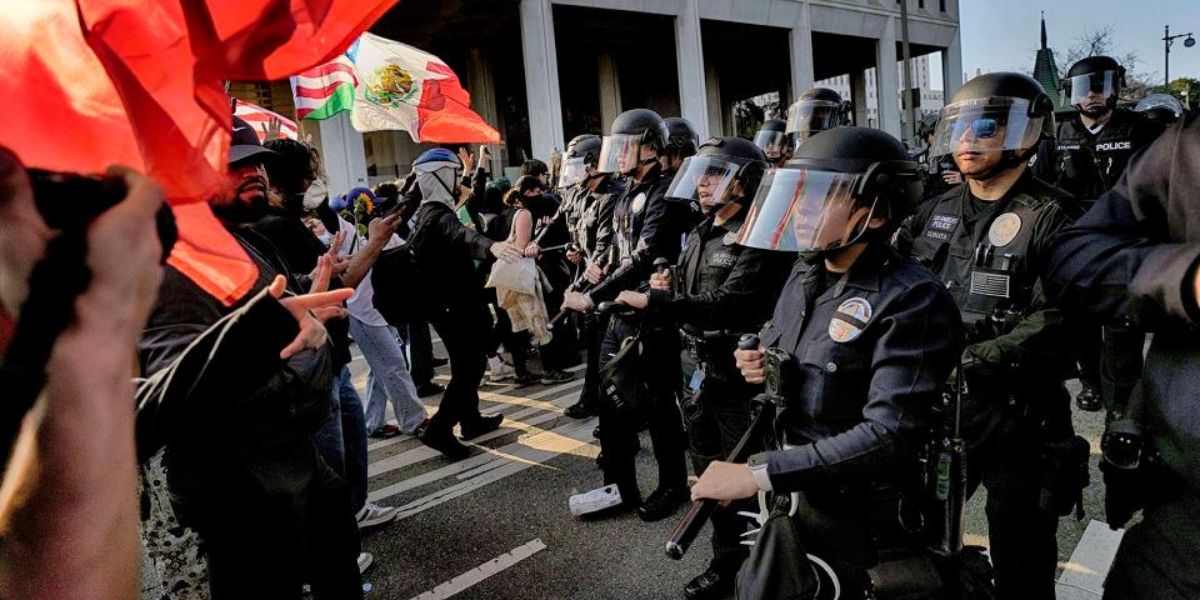Civil lawsuit against NOPD officer reopens questions about police accountability amid federal oversight rollback
NEW ORLEANS — The federal civil trial of New Orleans Police Officer Derrick Burmaster began Monday in a case that has reignited community concerns over police accountability, transparency, and the legacy of excessive force in a department long subject to federal oversight.
At the center of the trial is the shooting of Apollo, a 16-week-old Catahoula Leopard puppy fatally shot by Burmaster while responding to a domestic disturbance call in April 2021. The dog’s owners, Derek Brown and Julia Barecki-Brown, filed suit against Burmaster and the City of New Orleans, alleging violations of their constitutional rights and a systemic failure to properly train and supervise the officer.
“This was not a split-second emergency with no options,” said Stella Cziment, the city’s Independent Police Monitor. “The officer wasn’t carrying his baton or wearing his body armor. I don’t see how it aligns with policy; I don’t understand how he was exonerated and I disagree with that finding.”
A Fatal Encounter That Shook a Community
The incident occurred in the Lower Garden District after a report of a woman screaming. According to body camera footage reviewed by the Associated Press, Burmaster entered a gated yard after making “kissing noises” to detect dogs. Moments later, Apollo and another dog ran toward the officers barking.
While Burmaster’s partner retreated, Burmaster raised his gun and fired three times, striking Apollo. The puppy died in his owners’ arms as they pleaded with the officer.
“That’s a baby, that’s a puppy,” Barecki-Brown sobbed, according to footage. “This is the love of our lives.”
Internal Findings and Public Contradictions
Initial reviews by the department’s Use of Force Review Board unanimously found the shooting unjustified. Deputy Superintendent Christopher Goodly stated, “The smaller dog posed no threat.” Internal reports noted that Burmaster failed to consider non-lethal options and violated policy by not carrying required equipment.
Despite this, in July 2023, Burmaster was exonerated by the department’s leadership. NOPD Superintendent Anne Kirkpatrick, who approved the final decision, later testified in a deposition that she had not reviewed the bodycam footage before signing off.
“This reversal only came after the civil lawsuit,” Cziment noted. “There was no new evidence that justified the change.”
A Troubling Pattern and Broader Context
This was not the first such incident involving Burmaster. In 2012, he fatally shot another dog under similar circumstances. From 2012 to 2022, there were at least 11 fatal shootings of animals by New Orleans police officers, according to court records. Burmaster, a field training officer, had used force 11 times in the five years prior — each time ruled justified.
“Too often, the department’s internal checks amount to a rubber stamp,” said Maya Jenkins, a civil rights attorney and member of the local police reform coalition. “We’re seeing decisions driven more by litigation risk than a genuine commitment to community trust.”
NOPD, still undergoing federal consent decree reforms after years of misconduct investigations by the Department of Justice, has claimed progress in building a culture of accountability. But the exoneration of Burmaster has raised doubts, especially as federal monitors prepare to wind down oversight.
Legal and Civic Implications
The plaintiffs, who say they suffer from post-traumatic stress, are seeking damages for emotional distress and constitutional violations. Their legal team argues that the officer’s actions—and the city’s failure to discipline him—reflect systemic deficiencies in training, supervision, and use-of-force policy.
Burmaster and the New Orleans Police Department have declined to comment, citing ongoing litigation. His attorney, Corwin St. Raymond, maintains that Burmaster “acted in accordance with his training” and responded to a perceived threat.
Meanwhile, the federal trial is shaping up to be a test of the city’s readiness to police itself once the federal consent decree lifts.




